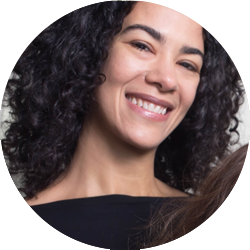The TV is gone from our living room. And it was my husband’s idea.
He is a sports fan, so we’ll see how this goes. The plan is that he’ll walk down the street to a neighborhood bar to watch the occasional game. Or go at a friend’s house. That’s always sounded nicer to me than watching at home–more social, more neighborly. We could use more neighborliness these days.
But that wasn’t my husband’s reasoning. He just wanted to flop on our couch at the end of the day and feel a sense of peace.
Home is his respite from the barrage of work-related requests, the stresses of starting his own business, and the clamoring of the city (ours is constantly under construction).
I think we all feel this assault, in various ways, of too much. Too much going on. Too much information. Too many choices. And if we’re feeling overwhelmed, imagine how our kids feel.
Many of us have been intrigued by decluttering our drawers and “the life-changing magic of tidying up,” if instant bestseller status is any indication. Kim John Payne, author of Simplicity Parenting, urges us to see what happens when we go further. Much further.
He finds that when families drastically cut not only the clutter but also the information and choices, children gain as much peace as their parents. He’s had some inspiring results helping children diagnosed with ADHD. To Payne, “drastically” means things such as:
— Your child has only a few favorite books in reach at a time. Now he can truly focus on them.
— You dump all of the toys in the house into one mountain, get rid of half, and get rid of half again. (Keep the creative and collaborative toys.) Then a dozen toys stay within reach, while the rest go into a “toy library” for occasional swapping. Cover toy bins with cloth.
— You don’t talk about work or the stresses of the adult world in front of your child. The aim is to protect the innocence of childhood. Payne’s reasoning is profound: that if we don’t show children a beautiful world now, they won’t know how to create a better world later.
— You establish rhythms and routines, eliminating endless choice about what will happen in a day.
— You plan islands of calm and connection each day. If you have a super active day, you buffer it on either side with a calm day.
And:
— You get rid of your TV. For your kid’s first seven years.
Payne says the families he works with find that living without a TV is not as hard as they imagined. That’s what my husband and I have found as well. Same with several other random people who, when I mentioned we’d gotten rid of our TV, said, “You did? Me too!”
To clarify, this doesn’t mean we never watch TV. There will be the football games I mentioned. We finished Game of Thrones on the iPad Mini, thanks to HBO Go. My husband looks forward to eventually watching Star Wars with our daughter. (He has such fond memories of his dad taking him to see it at the movie theater.)
But it does mean that we rarely think to watch a show. Instead, that time goes to reading, talking, walks, puzzles, or board games that–oops–make our child cry.
Why get rid of your TV?
Sure, there are plenty of reasons to lay off the screen time, which I detail in Zero to Five: 70 Essential Parenting Tips Based on Science. It’s some of the most robust research out there.
And I can see some benefits of staying off screens just by looking at my daughter. We followed the AAP’s recommendation of no screen time in her first two years and have kept it up. She’s now happy entertaining herself by flipping through books, building stuff, or making up stories.
But the reason that might resonate best these days? To simplify. To flop down on your couch at the end of the day and feel a sense of peace.
Written by
Tracy Cutchlow
Tracy is the author of the international bestseller Zero to Five: 70 Essential Parenting Tips Based on Science, a public speaker, and a creator of places to speak and be heard. Sign up for her newsletter here.


Just thought I’d chime in on this one. Our children are grown and out on their own now but we made the decision to live without TV when Susan, my wife, and I married in 1984. I had already been without it for a number of years and she shared my view. Our children did see TV at friends’ houses and we had one in our home hooked up to a VHS player so it was a video monitor. They never seemed to miss it and turned out quite well. None of the three seem to spend much time with TV today. I’m very happy with our decision. It did cause a challenge when with friends, though, (still does) since we can’t participate in discussions around the popular shows. Oh, well!